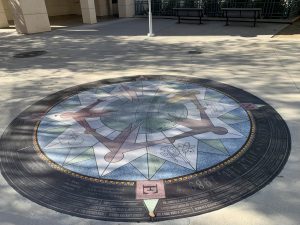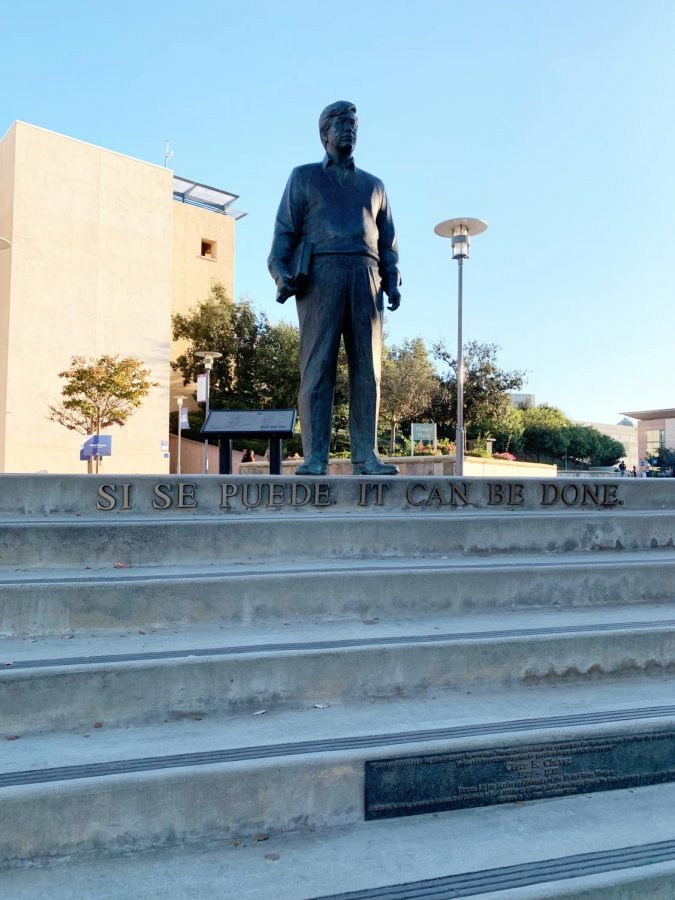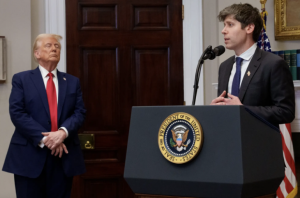Statues, seals and superstitions on the CSUSM campus
CSUSM students have many suspicions surrounding the Cesar Chavez statue and believe that it brings good luck if you rub the book Chavez is holding.
December 3, 2021
Superstitions, they’re easy to write off as irrational. Stepping on a crack will break your mother’s back or eating the entire fortune cookie acting as the only criteria for its message to become a reality seem unlikely.
Specific rituals are performed by many.
On the 2007 campaign trail, President Obama brought every good luck charm given to him by supporters to debates and interviews. Taylor Swift and the number “13” have become nearly synonymous with one another.
To skeptics, superstitions are baseless rituals. But to believers, good luck charms and rituals hold power. In some ways, superstitions sum up what it means to be a human; looking for doorways to a hopeful future.

A catalogue of the CSUSM campus superstitions might start with the ominous idea when the campus coffee cart line wraps around the nearby Founder’s Seal, watch out.
A second entry would be the odd practice of students rubbing the book the statue of Caesar Chavez holds atop the sea of stairs in front of the Arts Building.
Jazmin Bautista, a biochemistry major at CSUSM and a student ambassador, toured the campus in 2018. Her tour guide pointed out the spots associated with that superstition.
“I was told on the tour that if you touch the book on Cesar Chavez’s hand I would ace my next exam,” said Bautista. “However, in order for it to work, I needed to take all the stairs that led up to the statue.”
More than 20 years ago, the area in front of the Arts Building and near the USU was named Chavez Plaza. At the same time, a statue of the farm worker activist was added above Craven Circle. It stands above bronze letters that spell out the school’s motto: Si Se Puede; It Can Be Done.
The tradition goes that as students climb to the top of the stairs and touch the book in Chavez’s hand, they will take a piece of his knowledge with them.
This is a central ritual on test days, when a student rubbing the book grants the kind of encouragement a family member might bestow.
“Some of our very own tour guides, Lex Ellgard and Maritza Bautista both rubbed the book in his hand before an exam and aced it,” said Jazmin Bautista.
When students actively avoid stepping on the campus’ Founder’s Seal it is not uncommon for one to be curious.
Campus Coffee cart has been stationed in Founder’s Plaza and outside Science Hall for 18 years. The baristas there have been witness to campus tour guides sharing the legend that if you step on the seal, you will ruin your chance to graduate in four years.
Skeptics might argue that the school promotes the belief to get students to avoid walking on the donor funded seal. The university says the symbols on the Founder’s Seal reflects its commitment to diversity.
“I remember them telling me that out of respect to our founders and the story behind the seal we do not step on the seal, and if we do then we will not graduate on time,” Bautista said.
The Founder’s Seal remains untrampled and students forgo the USU elevator for the stairs up to the plaza even on the warmest days — good luck charms at work.







